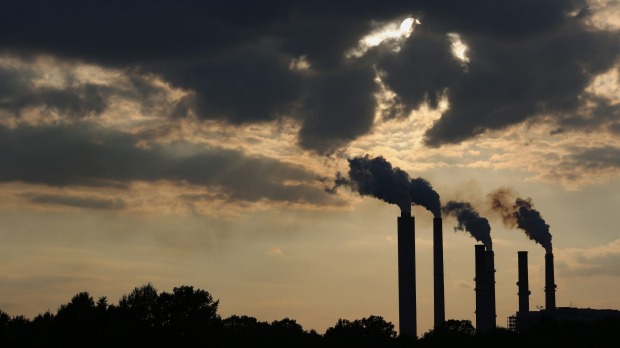-
Tips for becoming a good boxer - November 6, 2020
-
7 expert tips for making your hens night a memorable one - November 6, 2020
-
5 reasons to host your Christmas party on a cruise boat - November 6, 2020
-
What to do when you’re charged with a crime - November 6, 2020
-
Should you get one or multiple dogs? Here’s all you need to know - November 3, 2020
-
A Guide: How to Build Your Very Own Magic Mirror - February 14, 2019
-
Our Top Inspirational Baseball Stars - November 24, 2018
-
Five Tech Tools That Will Help You Turn Your Blog into a Business - November 24, 2018
-
How to Indulge on Vacation without Expanding Your Waist - November 9, 2018
-
5 Strategies for Businesses to Appeal to Today’s Increasingly Mobile-Crazed Customers - November 9, 2018
Obama to require steeper emissions cuts from US power plants
In the strongest action ever taken in the United States to combat climate change, President Barack Obama will unveil on Monday a set of environmental regulations devised to sharply cut planet-warming greenhouse gas emissions from the nation’s power plants and ultimately transform America’s electricity industry.
Advertisement
The fresh rules are expected to be announced at a White House ceremony.
The rule assigns each state a target for reducing its carbon pollution from power plants but allows states to create their own plans for doing so.
The rule – the first to regulate carbon emissions as a pollutant – is certain to face legal challenges as well as fierce opposition from the Republican-controlled Congress. Opponents blasted last year’s proposed regulation as a possibly illegal federal overreach that would impose costly burdens on utility companies and their customers.
The new rules also demand that power plants use more renewable sources of energy like wind and solar power.
The final rules would extend the timetable for states and electric utilities to comply, compared with a draft proposal put forth by the EPA in June 2014, according to people who are familiar with the plan but who spoke on the condition of anonymity because they were not authorized to speak publicly about it.
“Climate change is not a problem for another generation”, he said. Experts estimate that as many as 25 states will join in a lawsuit against the rules and that the disputes will end up before the Supreme Court.
The regulation also puts a capstone on Obama’s efforts to secure a legacy as the president who made a serious assault on global warming, without waiting for action from Congress – though he will have to depend on his successors to carry it through.
Regulations will require power plants to cut emissions 32 percent from by 2030, in contrast to 2005 levels.
But EPA’s critics note that the rule comes amid troubling financial times for the coal industry, and might even arrive on the same day that a major coal producer – Virginia-based Alpha Natural Resources – is expected to file for bankruptcy protection. States will also have until 2018 instead of 2017 to submit their plans for how they intend to meet their targets.
But a person familiar with the rules said they would include incentives designed to reward states that comply as early as 2020. The final rule aims to keep the share of natural gas in the nation’s power mix the same as it is now.
Power plants account for some 40 per cent of US emissions of carbon dioxide, the most common greenhouse gas that contributes to climate change.
Advertisement
The credibility of those promises will be at stake in December, when negotiators the U.S. and other nations gather in Paris to try to reach a global climate agreement. He says power plants are the biggest source of harmful, heat-trapping gases but that until now there have been no federal pollution limits. New, more efficient plants that are replacing older and dirtier ones have already pushed emissions down almost 13 percent since 2005, putting them about halfway to meeting Obama’s goal. The GOP field of 2016 candidates opposes the rule: Wisconsin Gov. Scott Walker said it is “unworkable”, while former Florida Gov. Jeb Bush has called it “irresponsible and ineffective”.





























